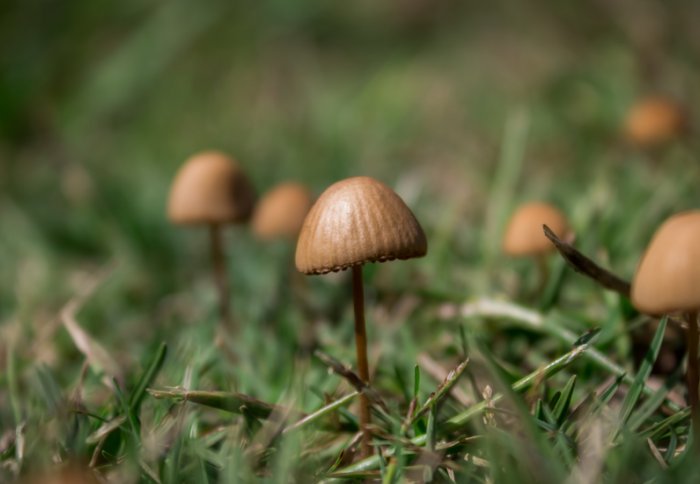Imperial scientists explain what their psychedelic research means for patients
by Kate Wighton

Scientists from Imperial College London have published research suggesting a compound in magic mushrooms, psilocybin, may help treat depression.
Here we answer questions about the study, and the scientists explain what the findings mean for patients.
What did the scientists do in this research? In this trial scientists gave 12 patients with hard-to-treat depression two doses of psilopcybin, the active ingredient in magic mushrooms. Patients attended two treatment days – a
In our study all the patients had psychiatrists on hand to guide them through this process, and help them face any fears or issues that arose during their experience
– Dr Robin Carhart-Harris
Study author
low (test) dose of psilocybin 10mg oral capsules, and a higher (therapeutic) dose of 25mg a week later. Patients took the capsules while lying down on a ward bed, in a special room with low lighting and music, and a psychiatrist sat either side of the bed. Psychiatrists were present to provide support and check in on patients throughout the process by asking how they were feeling.
What were the results? The early-stage trial found that psilocybin was safe and well-tolerated and that, when given alongside supportive therapy, helped reduce symptoms of depression in about half of the participants at 3 months post-treatment.
Do the results show magic mushrooms cure depression? No. The authors warn that strong conclusions cannot be made about the benefits of psilocybin - but the findings show more research in this field is now needed. Crucially, there was no placebo group in this trial. This means the team don’t know whether the benefits came from the patients simply taking part in the trial - and talking to psychiatrists in the study about their thoughts and feelings, rather than the psilocybin compound itself. The next step is to conduct a study where half of the patients receive just the psychological support (the placebo group), while the other half receive the psychological support and the psilocybin compound.
Would someone feel the same effects if they took magic mushrooms at home? No. If a patient with depression was to try this at home it could be dangerous, explains Dr Robin Carhart-Harris, lead scientist on the trial: “The patients in this study were carefully selected by psychiatrists. This is because some patients, for instance those with a history of psychosis, should probably not take magic mushrooms. The patients in our trial had unipolar depression and no history of psychosis.
"Furthermore, the 'trip' from magic mushrooms can be very unpredictable – it can be uplifting but it can also be very frightening. In our study all the patients had psychiatrists on hand to guide them through this process, and help them face any fears or issues that arose during their experience. Most of the patients stayed overnight at the clinic after they took psilocybin, and the next day they talked through their experience with a psychiatrist, to help them make sense of what they had experienced."
Dr Carhart-Harris adds that the experience of magic mushrooms is heavily influenced by the surroundings. “In our research the patients took the substance while lying down in a calm environment, with soft lighting and music – and with a psychiatrist sitting next to them. We had also discussed the possible effects the patients may experience, to ensure they felt as calm as possible before taking the substance. We believe the combined effect of the setting, psychological support and the compound produced the positive effects. The compound would probably not produce the same effects in isolation."
Where can I find out more information about this research? For more information about this research email here. For general information about depression go to mind.org.uk.
Article supporters
Article text (excluding photos or graphics) © Imperial College London.
Photos and graphics subject to third party copyright used with permission or © Imperial College London.
Reporter
Kate Wighton
Communications Division